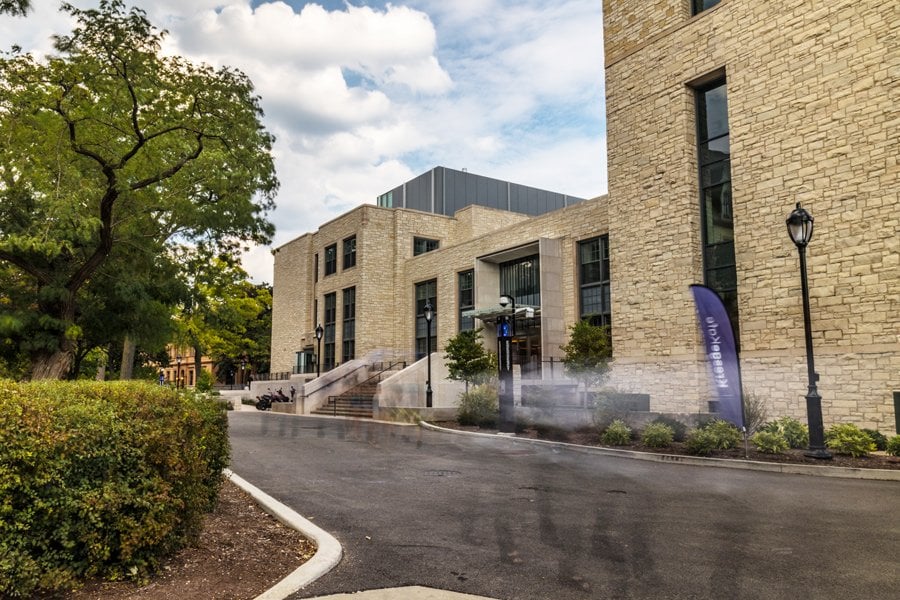Harvard researcher and NU profs. discuss Black and Dalit community solidarity
Daily file photo by Alec Carroll
The event was hosted by the Comparative Literary Studies Program and South Asia Research Forum.
May 7, 2021
Harvard University fellow Suraj Yengde discussed the importance of solidarity between Dalit and Black communities at a Thursday discussion.
The event was hosted by the Comparative Literary Studies Program and South Asia Research Forum. Weinberg Profs. Laura Brueck and Ivy Wilson moderated the talk.
Brueck began the conversation by discussing Yengde’s 2019 book “Caste Matters.” With the book, Yengde said he hoped to revive a rich tradition of global literature, dating back to the 1820s, chronicling systems that oppressed Black and Dalit people.
“I’ve been trying my best to create an archive for the future,” Yengde said.
Yengde cited James McCune Smith, Frederick Douglass and Charles Sumner as American historical figures who spoke out against the caste system. Douglass, he said, recognized that slavery directly produced a racial caste system in the United States.
He also said Ida B. Wells-Barnett was especially courageous for recording the acts of violence that reinforced that hierarchy. India didn’t have an equivalent documenter of caste-related violence at the time, he added.
Wilson said Wells’ pamphlet, “The Red Record,” which detailed lynchings of Black people in the postbellum era, connected with Yengde’s goal of constructing an archive.
“It’s difficult not to recognize her importance here in Chicago, given the way in which she was in the periphery of the Chicago World’s Fair in 1893, asking its organizers why the American Negro wasn’t involved in a celebration about, essentially, Western modernity,” Wilson said.
Brueck read a selection from “Caste Matters” about the idea of Dalit universalism and asked Yengde how such a humanist idea could function globally. Because societies across the world contain casteist social systems, Yengde said oppressed groups should join together in friendship and unite in their common purpose.
Brueck, who is teaching a class on race and caste this quarter, said her students appreciated the book’s emphasis on these concepts.
“We were really compelled with your conversation around Dalit humanity,” Brueck said.
Yengde also discussed his personal connections to Black activism. His father, he said, was a members of the Dalit Panthers, an organization inspired by the Black Panther Party that works to resist the caste system. Yengde also said he was initially introduced to Black spaces in Africa, rather than the United States, because he studied in South Africa for his doctorate.
He considers Harvard professors Cornel West and Henry Louis “Skip” Gates, Jr. among his mentors and said he feels comfortable in Black spaces of academia and culture.
“There is much more love in the Black American space,” Yengde said. “There is much more appreciation, there is much more camaraderie, brotherliness, that I feel at home.”
When asked about the role of non-Dalits in combating caste systems, Yengde noted that everyone is complicit in these social structures. He singled out Brahmins, members of the highest caste, as especially obligated to help dismantle the caste system, even if it means fighting with their own family.
Only then, Yengde said, can people begin to look beyond social stratification and unite.
“Anti-caste struggle needs to be everybody’s struggle,” Yengde said. “It’s just the real, sole investment in correcting something that you realize is wrong.”
Email: rjleung7@u.northwestern.edu
Twitter: @rjleung7
Related Stories:
— APAC hosts event on South Asian and Black solidarity
— Evanston artist Sarita Kamat talks her artistic journey from India to the U.S.
— South Asian Solidarity NU organizes talk on new discriminatory Indian



